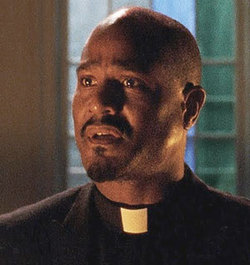
I want to let you know first of all that I love you and forgive you for what this has done in my life. I also wanted to let you know exactly what your porn use has done to my life. You may think that this effects only you, or even your and mom’s relationships. But it has had a profound impact on me and all of my siblings as well.
I found your porn on the computer somewhere around the age of 12 or so, just when I was starting to become a young woman. First of all, it seemed very hypocritical to me that you were trying to teach me the value of what to let into my mind in terms of movies, yet here you were entertaining your mind with this junk on a regular basis. Your talks to me about being careful with what I watched meant virtually nothing.
Because of pornography, I was aware that mom was not the only woman you were looking at. I became acutely aware of your wandering eye when we were out and about. This taught me that all men have a wandering eye and can’t be trusted. I learned to distrust and even dislike men for the way they perceived women in this way.
As far as modesty goes, you tried to talk with me about how my dress affects those around me and how I should value myself for what I am on the inside. Your actions however told me that I would only ever truly be beautiful and accepted if I looked like the women on magazine covers or in porn. Your talks with me meant nothing and in fact, just made me angry.
As I grew older, I only had this message reinforced by the culture we live in. That beauty is something that can only be achieved if you look like “them”. I also learned to trust you less and less as what you told me didn’t line up with what you did. I wondered more and more if I would ever find a man who would accept me and love me for me and not just a pretty face.
When I had friends over, I wondered how you perceived them. Did you see them as my friends, or did you see them as a pretty face in one of your fantasies? No girl should ever have to wonder that about the man who is supposed to be protecting her and other women in her life.
I did meet a man. One of the first things I asked him about was his struggle with pornography. I’m thankful to God that it is something that hasn’t had a grip on his life. We still have had struggles because of the deep-rooted distrust in my heart for men. Yes, your porn watching has affected my relationship with my husband years later.
If I could tell you one thing, it would be this: Porn didn’t just affect your life; it affected everyone around you in ways I don’t think you can ever realize. It still affects me to this day as I realize the hold that it has on our society. I dread the day when I have to talk with my sweet little boy about pornography and its far-reaching greedy hands. When I tell him about how pornography, like most sins, affects far more than just us.
Like, I said, I have forgiven you. I am so thankful for the work that God has done in my life in this area. It is an area that I still struggle with from time to time, but I am thankful for God’s grace and also my husband’s. I do pray that you are past this and that the many men who struggle with this will have their eyes opened.
Love, Your Daughter
This post is anonymous. The original can be found here: http://www.faithit.com/an-open-letter-to-the-dad-looking-at-porn/
BE HOLY.
BE A MAN.









 RSS Feed
RSS Feed